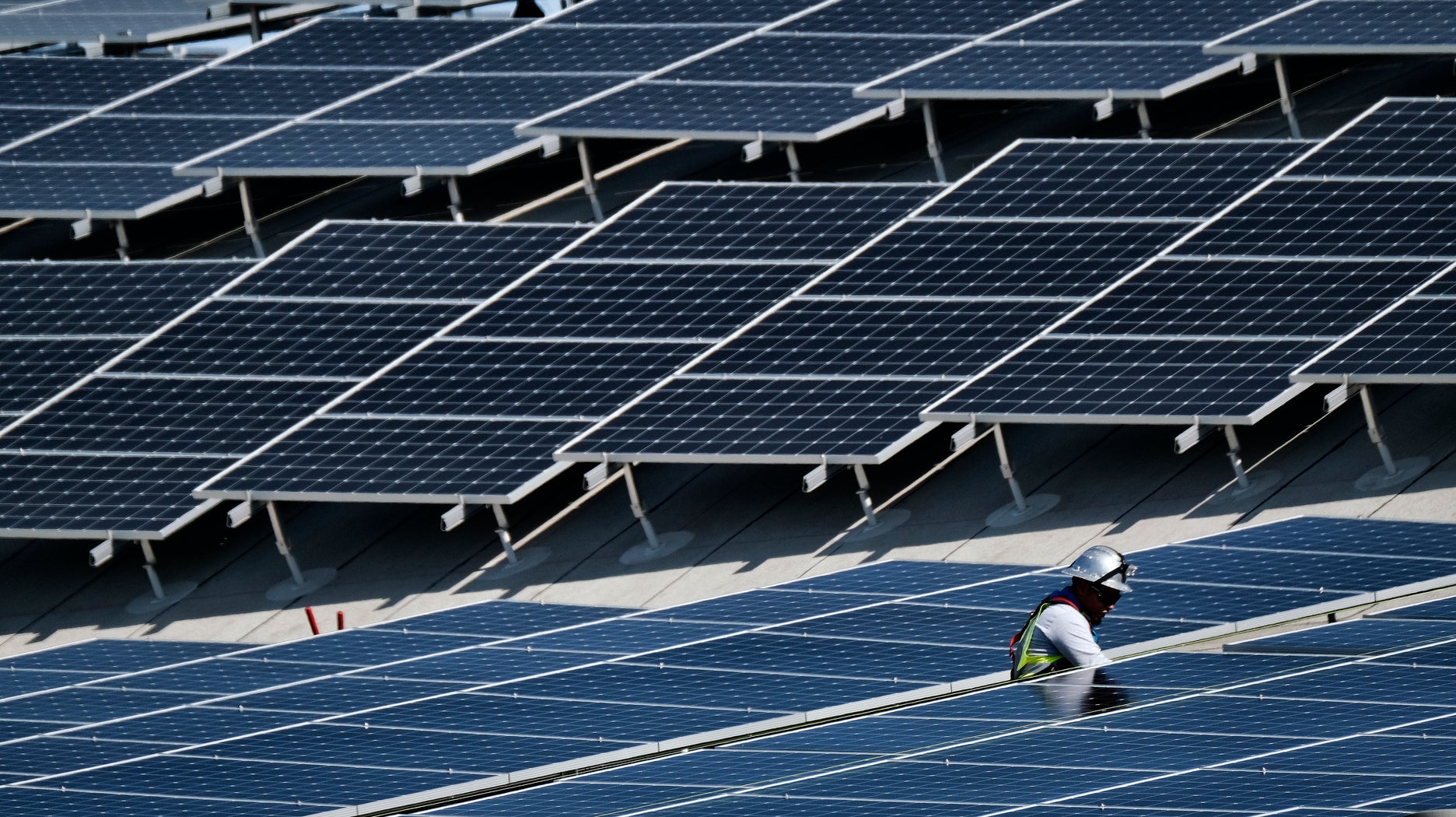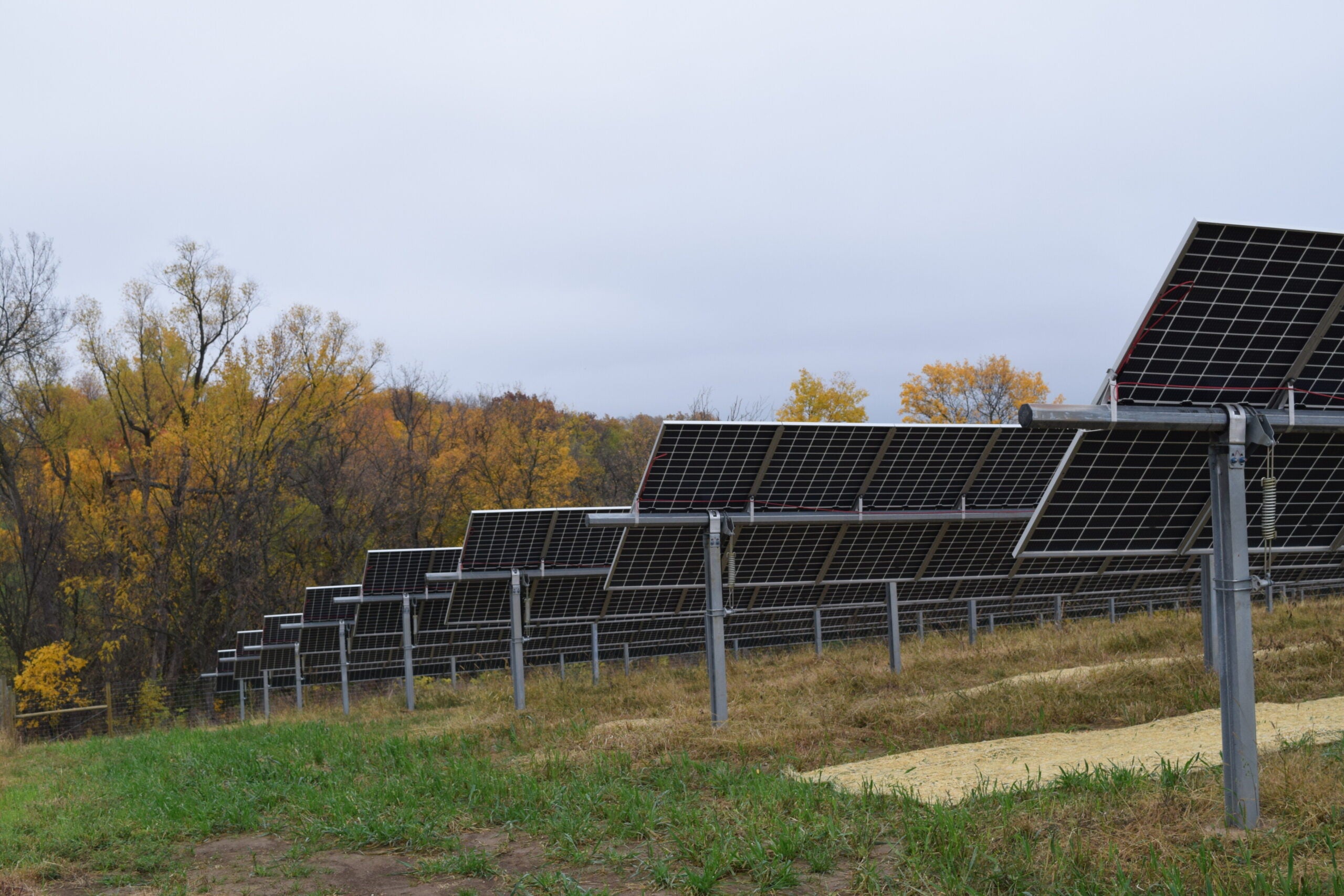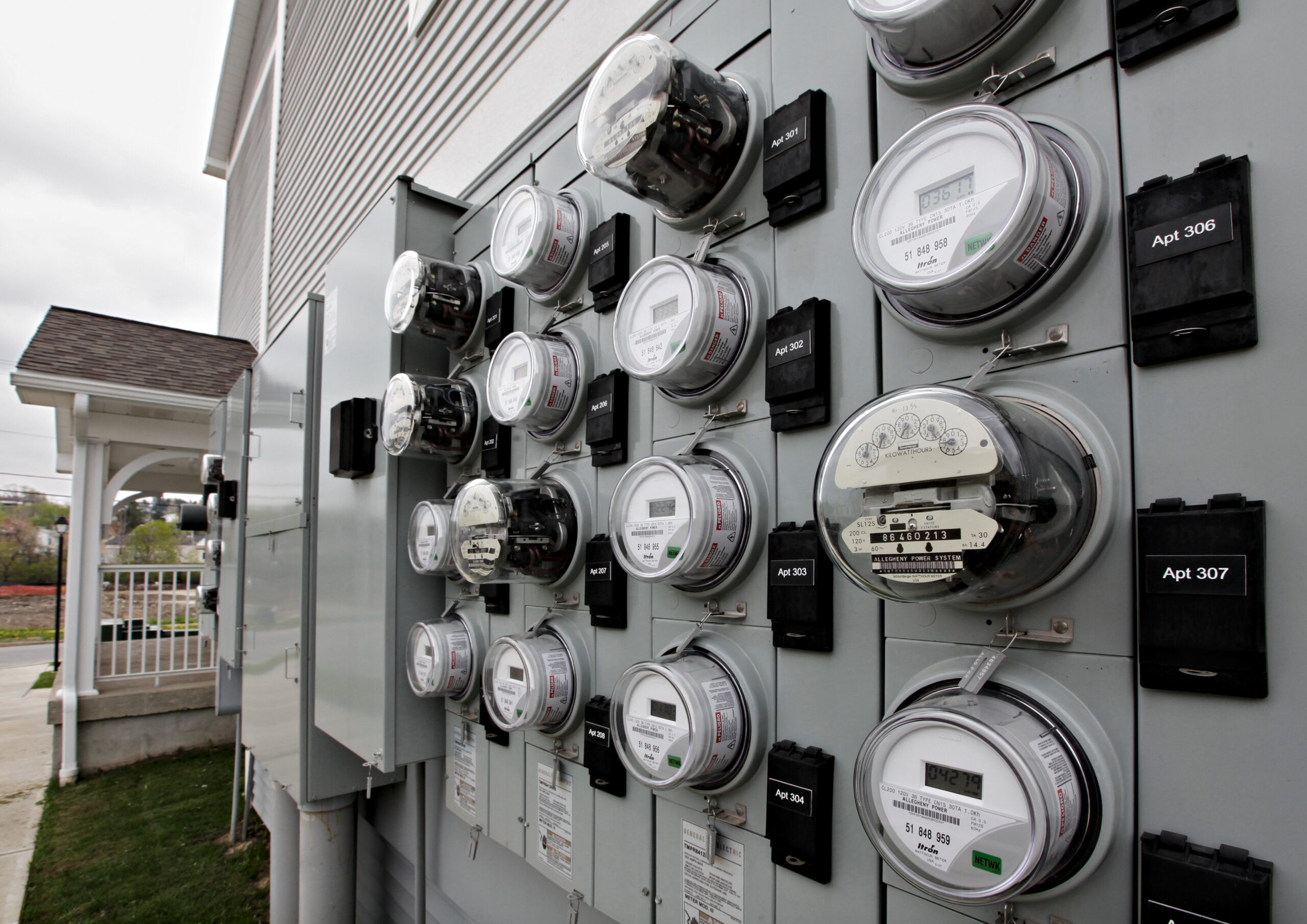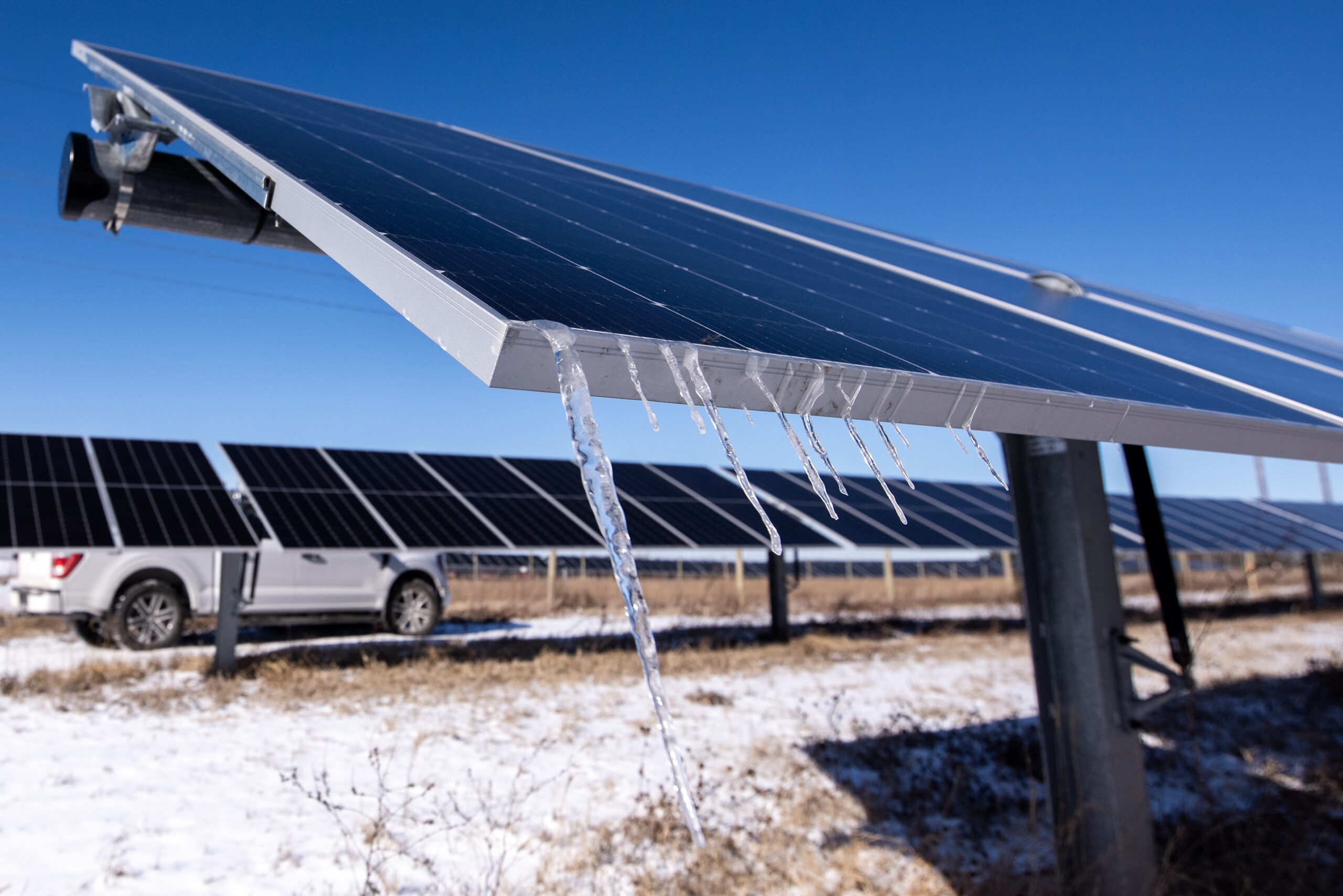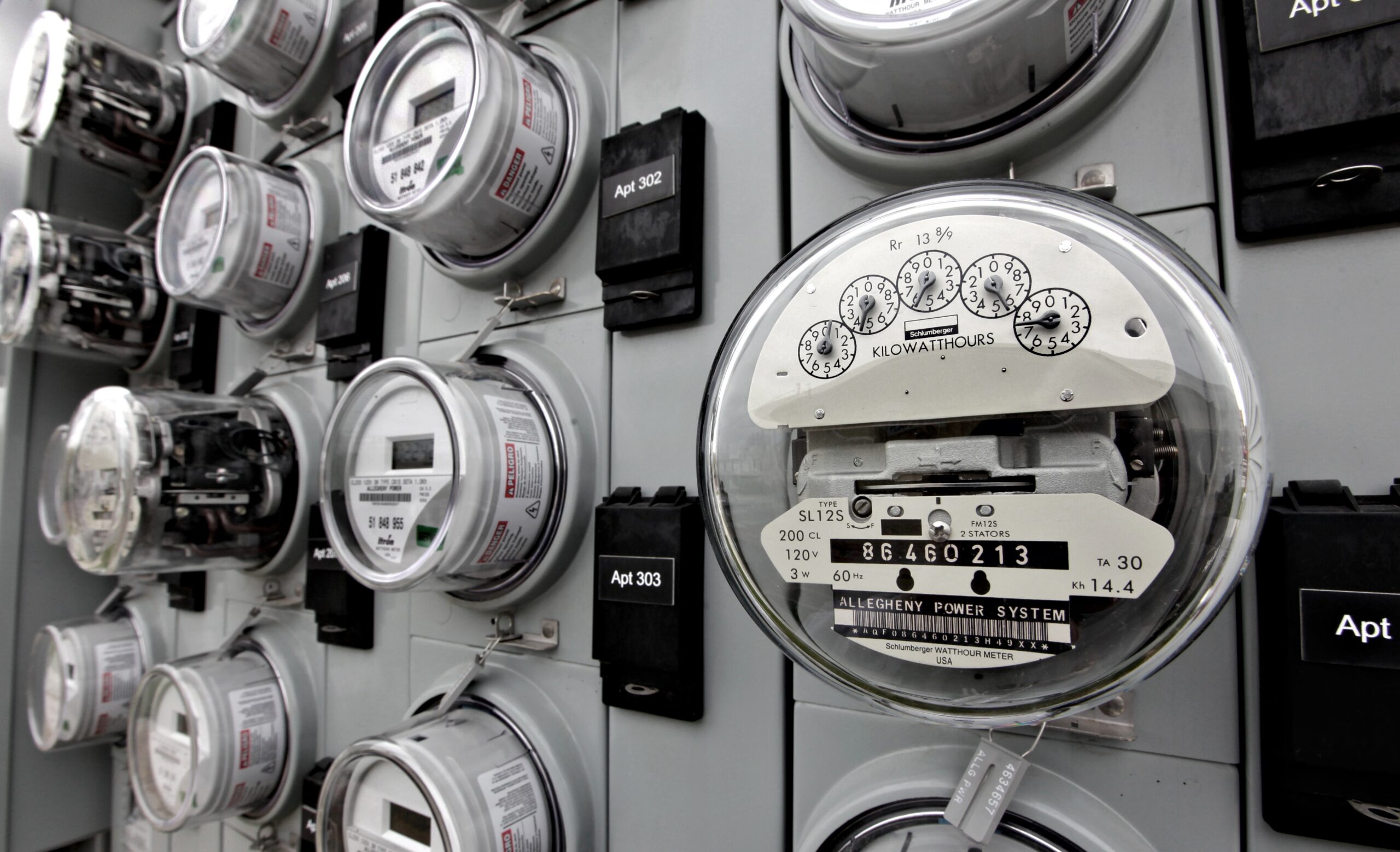State regulators signed off on settlements reached with two of the state’s largest utilities Thursday as they’re raising rates to recover costs tied to the clean energy transition.
The Public Service Commission voted 2 to 1 to approve agreements that Xcel Energy and Alliant Energy reached with consumer advocacy, environmental and business groups as they raise electric and natural gas rates next year.
Electric and natural gas rates will each increase 8.4 percent next year for Xcel’s customers in Wisconsin under the settlement and updated fuel cost plan approved by regulators, according to the PSC.
News with a little more humanity
WPR’s “Wisconsin Today” newsletter keeps you connected to the state you love without feeling overwhelmed. No paywall. No agenda. No corporate filter.
For Alliant’s customers in Wisconsin, commission data shows electric rates will increase 10.9 percent while natural gas rates will rise 8.6 percent next year under its settlement and updated fuel cost plan approved by commissioners. Alliant may pursue a limited increase for natural gas rates in 2023, but electric rates are expected to hold steady.
Commissioner Ellen Nowak voted against both settlements, saying the rate increases were “remarkable” compared to the recent past. She said the shortage of fuel supply due to the COVID-19 pandemic, state and federal policies, and the approval of new renewable energy projects is putting pressure on ratepayers.
“We should be going towards renewables, but the race to get there — it’s going to have consequences that can be done in a more economical way, I believe, that has fewer impacts on the ratepayers,” said Nowak.
Under the plan approved by regulators, Alliant said the average residential customer would pay about $11.50 more per month for electricity. Natural gas customers would pay about $5 more per month on average next year, according to the utility.
Xcel said the typical residential customer can expect to pay $9.60 more per month for electricity next year. In 2023, customers would pay an additional $4.25 on their monthly bills for electricity. Natural gas customers will pay about $4.65 more per month on their monthly bills next year and an additional $1.20 each month in 2023.
PSC Chair Rebecca Valcq said she didn’t agree with all aspects of the agreements, but felt they represented a reasonable outcome between parties. She noted the Citizens Utility Board and Wisconsin Industrial Energy Group, which together represent residential and industrial customers, supported both settlements.
Even so, commissioners voiced reservations about whether the settlements adequately represented ratepayers. Valcq highlighted concerns with Alliant’s agreement.
“I’m concerned that the agreement doesn’t go far enough to protect customers, especially from bearing the brunt of the cost from retired coal plants,” said Valcq.
Alliant has said it needs to raise revenues to help fund a more than $1 billion investment in 1,100 megawatts of solar in addition to recovering around $500 million in investments made in its Edgewater coal plant that’s set to be retired next year.
“We are committed to delivering reliable service while managing customers’ costs during our transition to clean energy, as outlined in our Clean Energy Blueprint,” said David de Leon, president of Alliant’s Wisconsin utility in a statement.
The utility has said its clean energy plan will avoid between $2 billion to $6.5 billion in costs for customers over the next 35 years.
Both Alliant and Xcel have pledged to reach net-zero carbon emissions by 2050.
Xcel’s rate increases are slated to fund significant investments in transmission lines, hydroelectric plants and the utility’s two nuclear plants in Minnesota. Xcel spokesperson Chris Ouellette said the revenues will also support new wind generation facilities outside Wisconsin, as well as the 74-megawatt Western Mustang Solar project in Pierce County.
“We know that any type of an increase is hard for any of our customers and all of our customers, but we also know that having reliable energy is important to our customers,” said Ouellette. “We do our best as a company to make those low-cost renewable options for our customers.”
The rate increases don’t include the projected hike in natural gas prices that customers can expect to see this winter due to market volatility. The Energy Information Administration expects nearly half the nation’s households that use natural gas for heating will spend 30 percent more than they did last winter.
Tom Content, executive director of the Citizens Utility Board, said they strive to negotiate on costs utilities can control under settlements.
He highlighted progress with utilities that included Xcel’s move to lower its fixed monthly charge for customers. He also noted efforts to reduce the amount of profits Alliant can collect on its Edgewater coal plant, as well as pledges from both utilities to work with the consumer advocacy group on low-income programs for customers.
Affordability will continue to be a focus during the transition over the next several years, said Content.
“We’ll need to zero in on both the coal plant retirement costs, utility profits, as well as just finding the most opportunities to help customers save money and keep costs affordable as part of this clean energy transition,” said Content.
Alliant provides electricity to 970,000 customers and natural gas to 420,000 people across Wisconsin and Iowa. Xcel Energy serves 263,000 electric customers and about 117,000 natural gas customers in northwestern Wisconsin and Michigan.
Wisconsin Public Radio, © Copyright 2025, Board of Regents of the University of Wisconsin System and Wisconsin Educational Communications Board.

